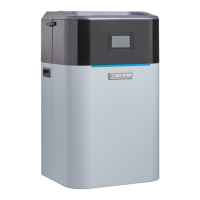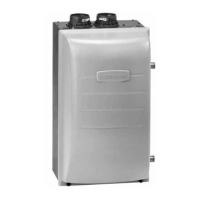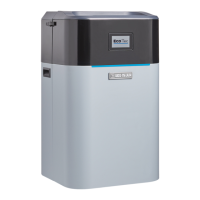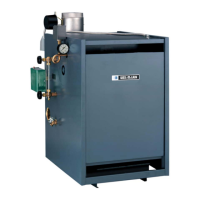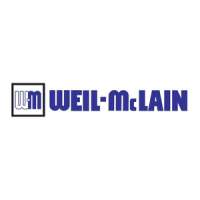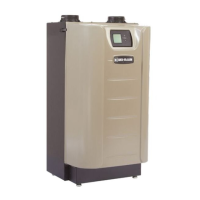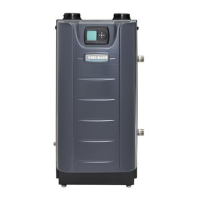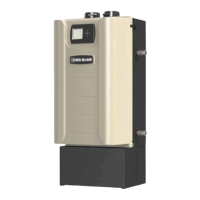Part number 550-100-270/0122
128
ECO
®
Tec series 2 gas-fired water boiler – boiler manual
HANDLING CERAMIC FIBER
MATERIALS
or
COVER PLATE COMPONENTS
e cover plate components, refractory
insulation, and gaskets contain ceramic
ber
materials that have been identied as
carcinogenic, or possibly carcinogenic, to
humans
.
Ceramic fibers can be converted to
cristobalite in very high temperature
applications.
e International Agency for Research on
Cancer (IARC) has concluded, “Crystalline
silica inhaled in the form of quartz or
cristobalite from occupational sources is
carcinogenic to humans (Group 1).”:
■ Avoid breathing dust and contact with skin and eyes.
• Use NIOSH certified dust respirator (N95).
is type of respirator is based on the OSHA
requirements for cristobalite at the time this
document was written. Other types of respirators
may be needed depending on the job site
conditions. Current NIOSH recommendations
can be found on the NIOSH web site at http://
www.cdc.gov/niosh/homepage.html. NIOSH
approved respirators, manufacturers, and phone
numbers are also listed on this web site.
• Wear long-sleeved, loose tting clothing,
gloves, and eye protection.
■ Handle carefully to minimize dust that could be
caused by abrasion.
■ If replacement is necessary, remove the refractory
from the boiler and place it in a plastic bag for
disposal.
■ Wash potentially contaminated clothes separately
from other clothing. Rinse clothes washer thoroughly.
■ Eye: Irrigate immediately
■
Breathing: Fresh air.
FIRST
-
YEAR SPECIAL INSPECTION
ItisrecommendedthatyouobtainaWeil-
McLain Boiler Maintenance kit before
attempting the first-year inspection, to
ensure all parts that may be needed are
available. is kit includes a heat exchanger cover
plate gasket, burner gasket, new ignition electrode,
and ignitor gasket. See listing in Replacement parts.
ese parts must be on hand when you perform
the rst-year inspection in the event they must be
replaced.
Failure to replace the Items above when needed
could result in severe personal injury, death or
substantial property damage.
1. No later than 12 months aer the boiler is installed,
perform a rst-year inspection of the boiler. is should
include the following in addition to routine annual
start-upprocedures.
a. Inspect the heat exchanger and clean if necessary (see
page149, for access and cleaning procedures).
b. Inspect the cover plate insulation and gasket. Replace if
not in good condition.
c. Inspect the burner and inspect carefully. Clean the burner
thoroughly using a vacuum cleaner and compressed air
if needed.
d. Make sure there is no blockage or accumulation of debris
in the burner or the burner ports. Replace the burner if
necessary.
e. Check the burner for tightness. Remove the cover plate
insulation and tighten the burner mounting screws if
needed, following the instructions on page150.
f. Make sure to follow the inspection procedure given in
“Check exchanger and vent seals,” page125.
g. Disconnect the condensate trap and drain lines. Inspect,
then ush thoroughly. Reinstall and rell the trap per
page121.
2. Determine any follow-up maintenance and service needs
based on the condition of the heat exchanger and condensate
lines.
a. If the heat exchanger shows substantial fouling, or
if condensate lines show accumulation of sediment,
schedule a follow-up service call to perform the rst-year
inspection again, sooner than the normal twelve months
between.
b. Heavy fouling of the exchanger or condensate lines
indicates possible combustion air contamination.
Inspect the air intake area carefully, and remove possible
contaminants. See page20, for products to avoid.
You must eliminate causes of corrosion and
contamination to ensure reliable operation of the
boiler and system.
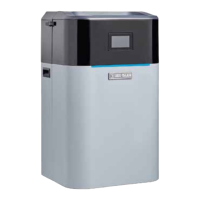
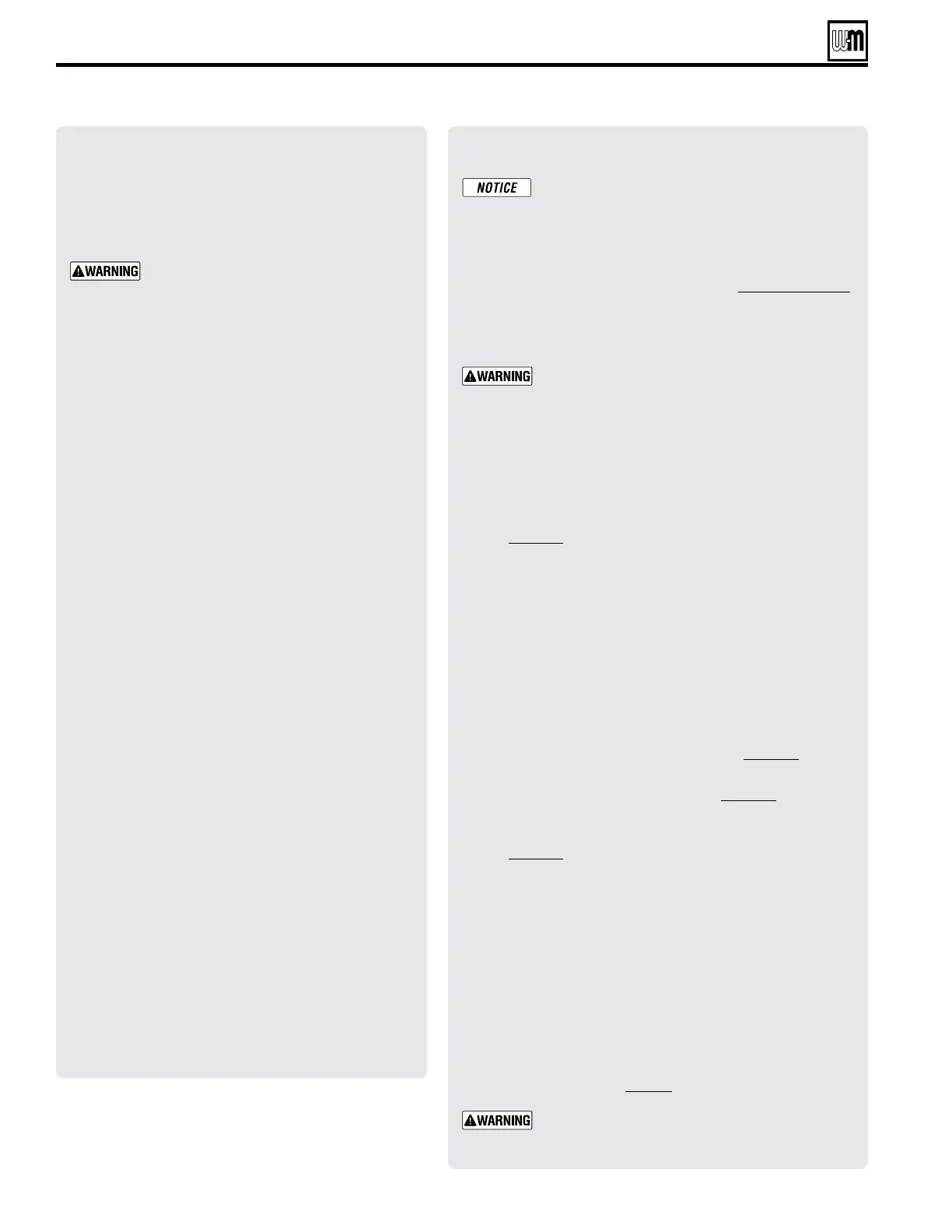